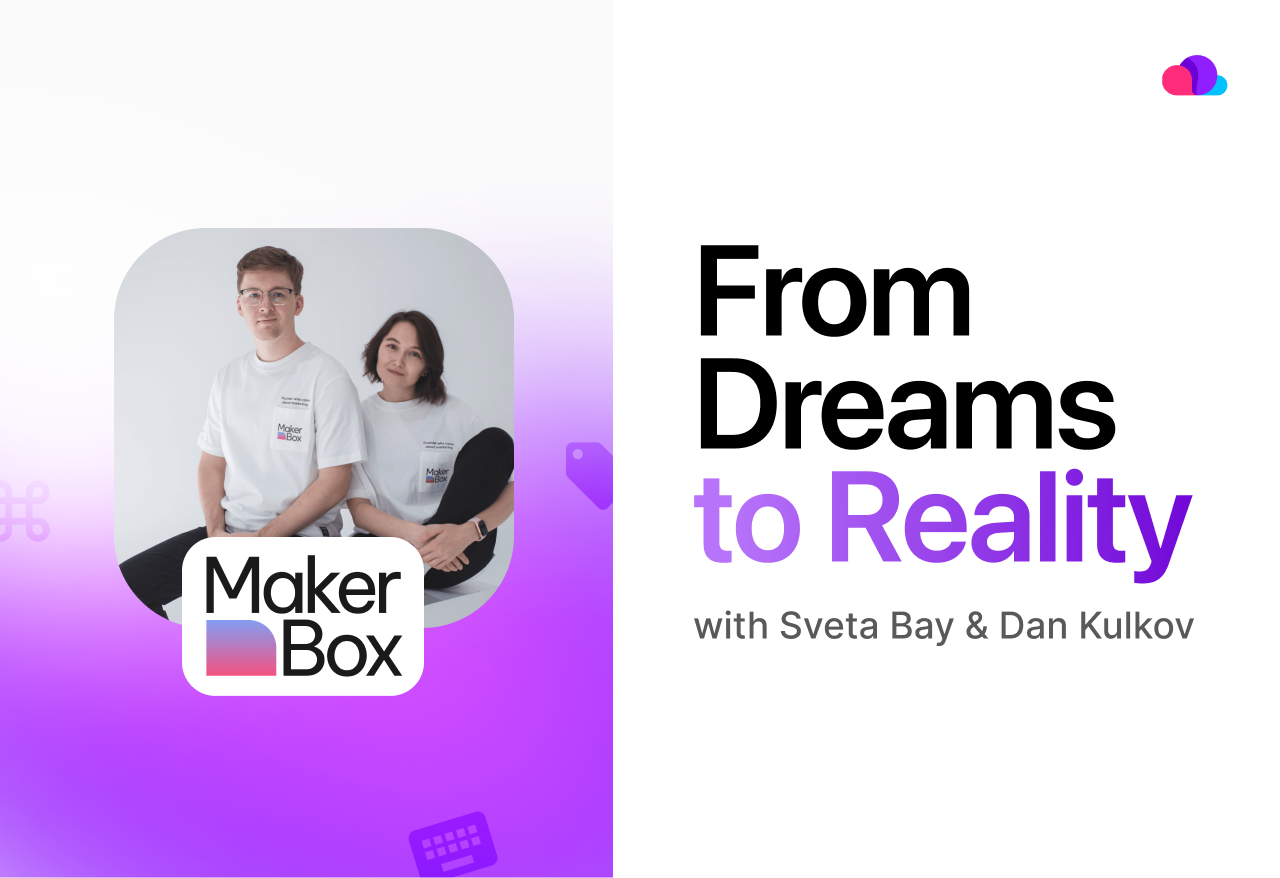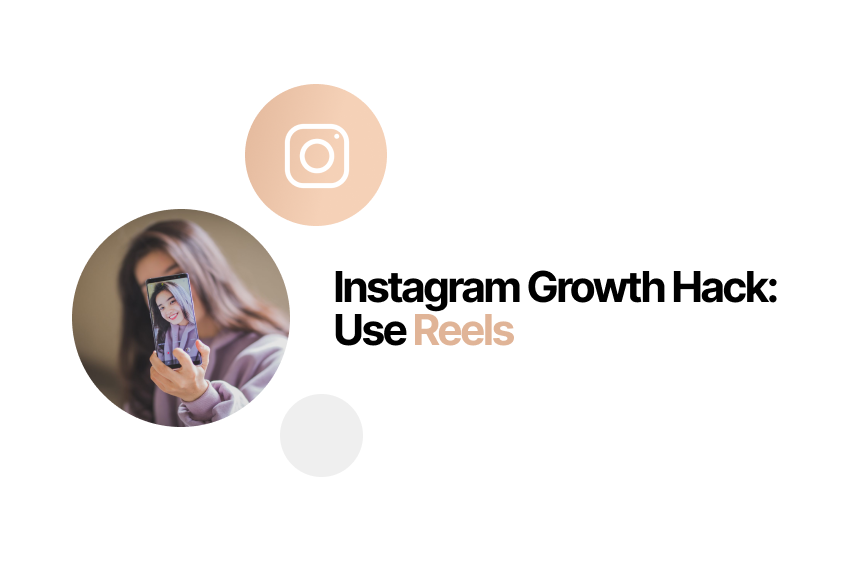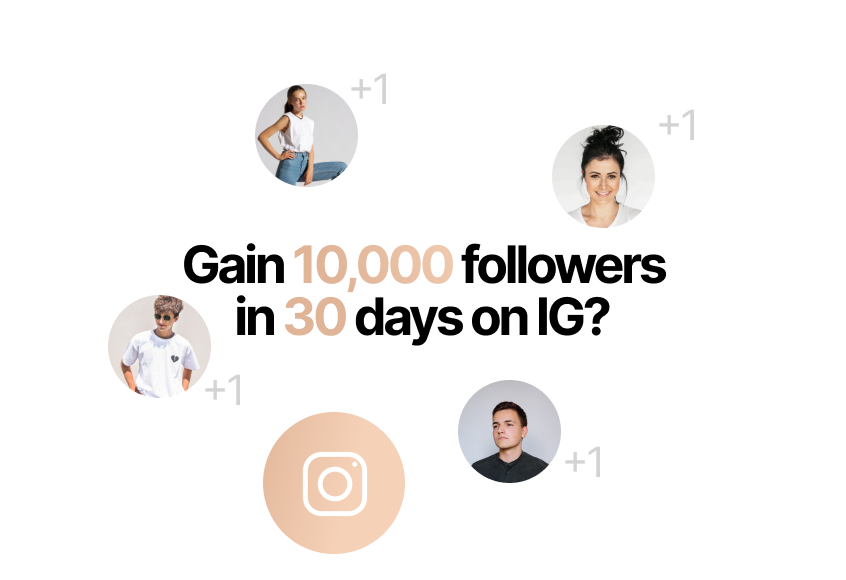From Dreams to Reality with Typedream: Kyleigh Smith
2023-05-15
A fireside chat with Kyleigh Smith, the founder of Harold the Habit Tracker. In this interview, Kyleigh shares with us how she got started as an indie hacker and advice for aspiring solopreneurs!
Kyleigh Smith is the co-founder of Harold, an AI-powered, text-based habit tracker and the author of the Maker of Habit newsletter. She is also an expert in growth, helping indie makers and startup founders with SEO, retention, activation, and all that it takes to get on a rocket ship trajectory. Kyleigh uses Typedream to run the Dry January Challenge as a part of Harold’s growth campaign.
About Kyleigh
Hi Kyleigh, can you tell us a little bit about yourself?
I'm Kylie. I have a background in product design and user research. I started my indie hacking career like right after the pandemic. So like March, 2020 when we all had all this extra time on our hands, I was finally able to start playing with some of my ideas.
So that was sort of the beginning of my indie hacking career. I started with Harold, the Habit Tracker, which you mentioned that I'm still working on. And I've sort of been in and out of, I'll have a full-time job, then I'll go back to Indie hacking full-time. Right now I'm indie hacking and then doing some consulting.
So you mentioned that you jumped into the indie hacking journey during the pandemic. Did you drop your six-figure job to go indie hacking full-time or did you juggle both jobs?
At the time I was working as a senior product designer at a startup. And I just started building Harold on the side. That was around the time when all of these no-code tools started popping up, and so I was finally able to figure out how I could build one of my own ideas without trying to recruit a developer. So for the first year, I was working full-time and just working on Harold on nights and weekends, and mornings, and then that startup shut down.
So then I kind of took that opportunity to work on it full-time for about a year, and I was focused on Harold, but also trying many other ideas too. None of 'em were making money. So then I went back to a full-time job. I just realized I missed the early-stage indie hacking startup environment. So I ended up leaving and now I'm doing the consulting for Llama Life, another Twitter indie hacker friend that people should recognize. I've been doing some consulting for her and the Llama Life product and getting back to indie hacking on the side. So it's about 50-50 now.
Forced my hand a little bit and then the second time leaving the full-time job was really hard cuz I, yeah, I had a really good salary. It was a great company and a great role. I just like had this yearning to get back to the earlier stage stuff. So it keeps, keeps pulling me back.
About Harold the Habit Tracker
Can you tell us about Harold the Habit Tracker? How did you get the idea for it and where do you see it going?
Yeah, it's funny because habit trackers I feel like get such a bad rep because there are a million of them and it's everyone's first dev project when they try to build something. But Harold is different because it's all through SMS.
So my problem with habit trackers was I can never stick with them. I think some people have no problem. They're like, I'm gonna do this thing and then they do it and they have no problem. I would create these like, spreadsheets in my journal with all the habits I was gonna do. I would track for two days and then forget about it. Like I have pages where I set up a habit tracker and it's just empty.
So that was my issue, remembering to track and making a habit of tracking So I had this idea of making like a little SMS bot that just texted you: “Hey, did you meditate today?” “Hey, did you work out?” And I could just text back yes or no because that I can do like, I'm already texting.
So that's Harold. He's like a little SMS bot. He has some AI built in. I'm using the new chat GPT-3.5 model. So he's kind of funny and he congratulates you when you do your habits. So it's kind of a fun experience.
Yeah. And he just texts you, so even if you like forget to track and then you go to text your friend later, he's there and your messages and you're like, “Okay, fine. I'll just, I'll just respond to him.” So I was able to track for four months with my prototype that I started out with, and that's when I knew, okay, this is at least solving my problem.
So hopefully there are other people out there with the same problem.
Can you talk about the highs and low of the indie-making journey?
Yeah, it's definitely a rollercoaster. So “highs and lows” is the right way to describe it.
The highs were just at the beginning. Like I put a link to my landing page and my Twitter bio and was just tweeting about it and then, you know, a random person signed up like that was so exciting, and then just having more people sign up and try it. I launched on Product Hunt and got, like 13th of the day, which was huge for me.
I had like 300 upvotes and 300 signups. So that was really exciting for my first product. And then I ended up winning the Maker Grant.
Then the lows I like are just as many. It's hard to keep the momentum and keep the motivation going when you don't have those signups when things aren't going well. There are always tons of other ideas and things you wanna do, so it's hard to stick with it. And so with Harold, I'm always asking myself like, “Is it time to move on to something else?” And then there's just something that keeps pulling me back to it.
Where Dry January comes in is where I'm starting to experiment with maybe different positioning or different markets. The product is great when people sign up. They retain for a really long time. I have people that have tracked for years. So like the product works, but the positioning is a habit tracker. I don't know, maybe it doesn't really excite people. So that's where the idea of Dry January came in. Like what are some specific use cases and niches that I can use the same stack but just like target those? That's where Typedream came in cuz it allowed me to really make that one-page landing page sign-up for Dry January Tracker and made everything really easy.
I listened deeper into your success. So you mentioned that one of the highs was when you really just tweeted something and a random person signs up, right? What are your efforts in order to have these momentums? Is it mostly Twitter and ProductHunt?
Yeah, for the first year or two, it was almost exclusively Twitter and ProductHunt. Maybe a little bit of Indie Hackers. Yeah, just building in public on Twitter, trying to share my progress. I also joined the No Code program, which they don't do anymore, but that was a way for me to get to know other indie makers and engage with them and that was a huge help.
Twitter was where like definitely the first hundred signups came from. And then this last year I've been trying to add SEO and Google as a channel with some success. So that's been bringing in some organic website visitors as well. Yeah, because Twitter runs out after a while.
I got a few backlinks from doing things like this. Like other indie makers and founders will you know, start a new podcast or something. So I've done a few of those and gotten a few backlinks that way. I haven't really done a lot of outbound.
For backlinks, but even just with what I was able to get, sort of organically set me up as like a, I had a domain rating of like 20 or something, And then I've just learned a little bit about SEO and how to target, not the most popular words, you know, that everyone's trying to get, but try to find these words that have 200 or 300 search volume per month and trying to beat out, one or two of those articles to get to that top 10. So it's possible even with a low domain rating, maybe that's something that not everyone realizes.
Building a landing page
In a tweet, you talked about your process to find the perfect website builder for your Dry January Challenge project. So at first, you were comparing Unicorn Platform versus Webflow, but at the end of the day, you decided to use Typedream. Can you maybe talk more about that?
Yeah. I'm so glad you dug this up. So yeah, my first go-to was the Unicorn Platform because that's what I used for Harold's. With Webflow, it's like very flexible and I know you can pretty much do anything you want on there, but that means a lot of time and the stage I'm at, you know, I'm, I was just testing this Dry January idea. I had no idea what was gonna happen with it, so I needed something quick.
So I think that's what it really came down to, and then what really sold me about Typedream was just how flexible it was. Like you have those pre-built components that look great outta the box. At the same time, it's really easy to move things around and make it your own.
It was just kind of a no-brainer. And then the process of like publishing and all that was just really easy. So That's amazing.
How did Typedream suddenly come into your world? Did you hear bout Typedream before or did you see a tweet of Typedream during that decision-making process?
Yeah, I think I just sort of had seen you and your team around on Twitter and Product Hunt. And I tried the product probably a year prior to this. Okay. And I thought it was really good. There were just a few things I was struggling with like dragging things. It felt like there were just a few kinks to be ironed out.
Yeah. So I kind of left and, and stayed with Unicorn and stuff, and then when I went back this time I was like, let me just see, let me try it again. You know, because I could see you guys tweeting and working hard on all this stuff. So, when I went back, all of that stuff had been ironed out.
It was clear, the team really focused on the product experience and made it super smooth. That also made me confident in the product. That this is something I should use for my products moving forward. Because you guys are listening to feedback, iterating, and improving the product, which is always good.
Is there a particular feature that you like most from Typedream?
I mean it's definitely the user experience. It's just so easy to use and I can really get it to do what I want it to do, and I do have design opinions and I want it to look a certain way and Typedream, was able to let me do that.
How did having a Typedream landing page help you with the campaign?
The biggest benefit was that I was able to get it up and ready in like a day, because I had this idea in late December, and I had to get it obviously ready before January 1st.
Yes. So that was the most critical, just being able to get it out and then being able to edit it really easily and make updates.
What I liked about it is I had this study that links to the benefits of Dry January and it kind of looked like a research paper that you could click into and read more, which I think helped with conversion. I got a bunch of bunch of signups. I should have pulled up the numbers before this, but, I think I had like 75 people in the Dry January Challenge, which for reference, like for Harold, I probably have one person sign up a week or something. So to have 75 in a couple days for this one-month challenge was a 10x increase for me.
To close, if you were to share a word or two with a new indie hacker, what would it be? What would you say to help them get from zero to one?
Yeah, it's a good question. I wrote a whole book about it if people wanna check it out. It's called The Honest Guide to Indie Making. But if I were to choose one thing, the biggest thing I think is just getting, like you said, getting your idea out there. Don't be afraid to talk to people about it or tweet about it because you think someone's gonna steal it. In reality, execution is the hard part, and like distribution, there's like so many things that are hard about going from zero to one.
So you sort of just need to get started and if you try to keep your idea too close people aren't gonna find out about it. Talk about your idea, share it with people, get feedback, like build a landing page and describe your product.
And then value proposition, that's always a good way to think through the value you're offering. It forces you to be really concise and just start sharing it. You really have to get comfortable with sharing things that aren't, you know, aren't finished or aren't perfect.
And you have to also know that your first idea is probably not the best, or like, it's probably you need that feedback from other people and you need feedback from the market to refine your idea. I think everyone, if they're at that stage where they're trying to spin up a landing page for a new idea, definitely check out Typedream. It's super easy and I love it.
Follow Kyleigh 👇🏼
Twitter: https://twitter.com/bagelsangranola
Harold the Habit Tracker: https://haroldthehabittracker.com/
See More Posts
We're a remote software company, building online tools for creators, builders, and side hustlers. We quit our 9-5 to pursue our dreams, and we want to help others do the same.
Backed by
Copyright © 2023 Govest, Inc. All rights reserved.



